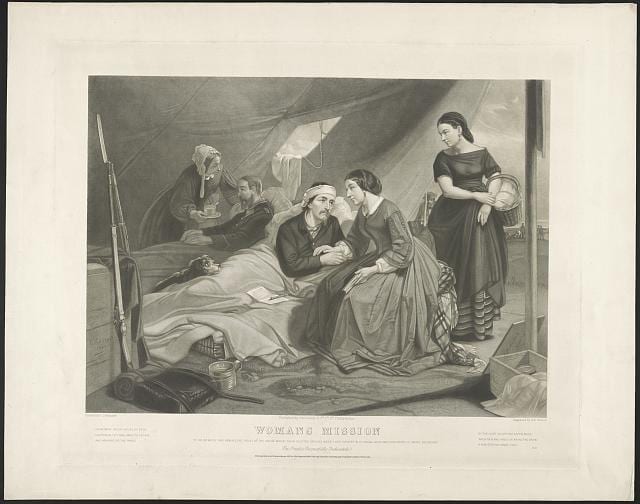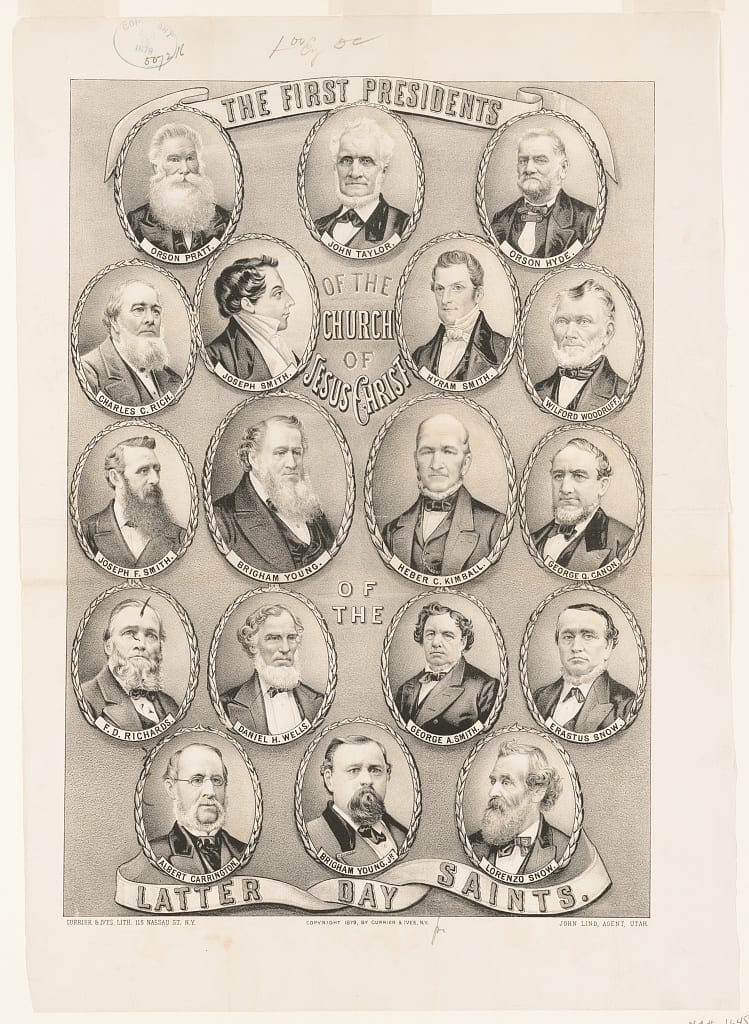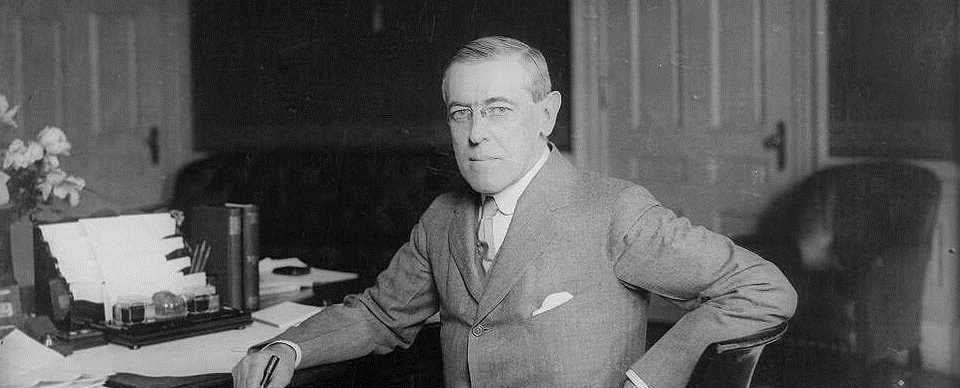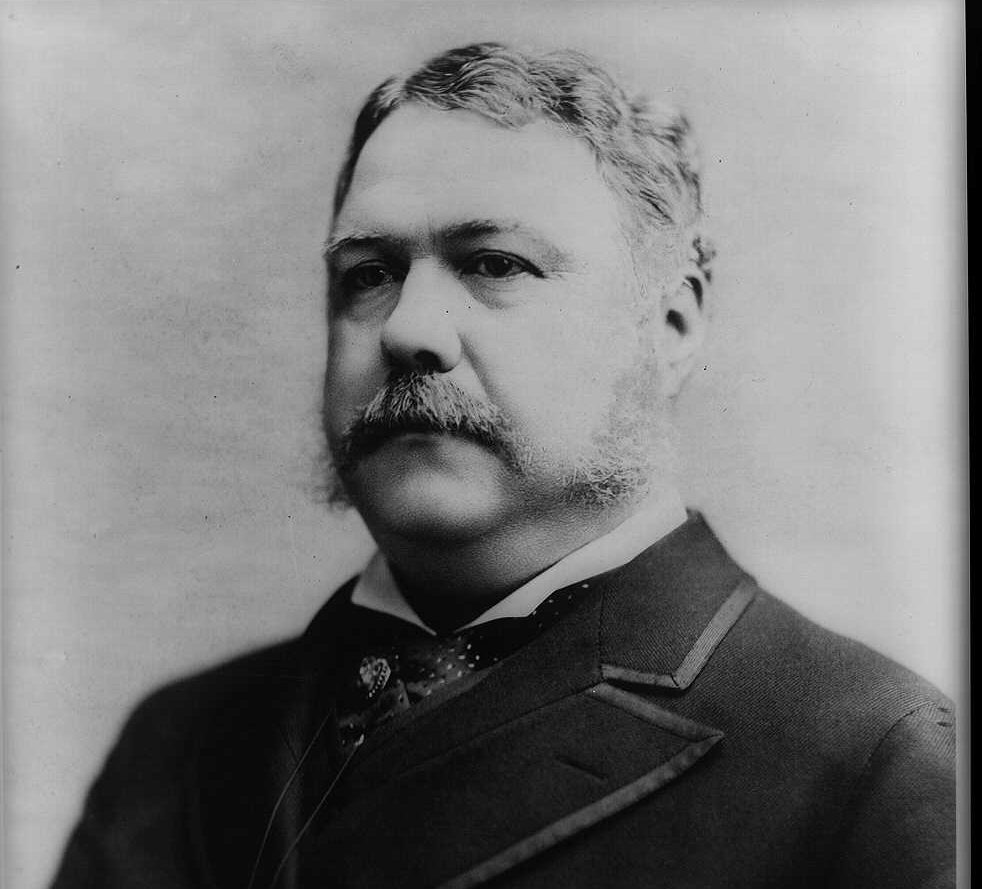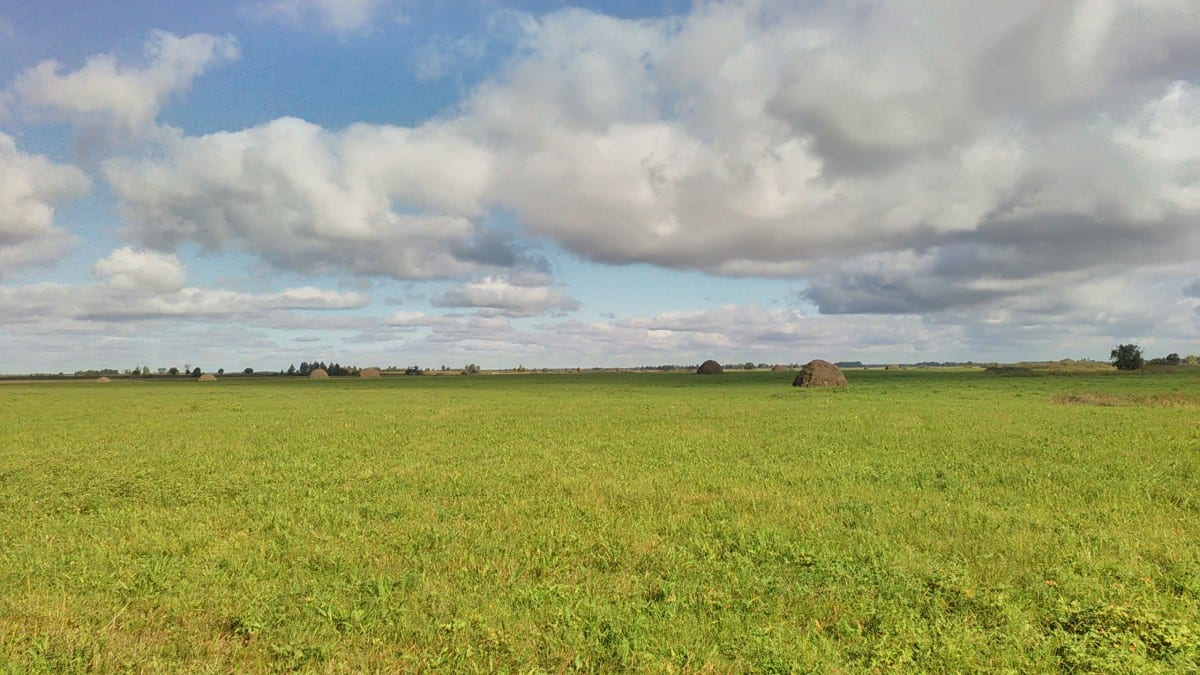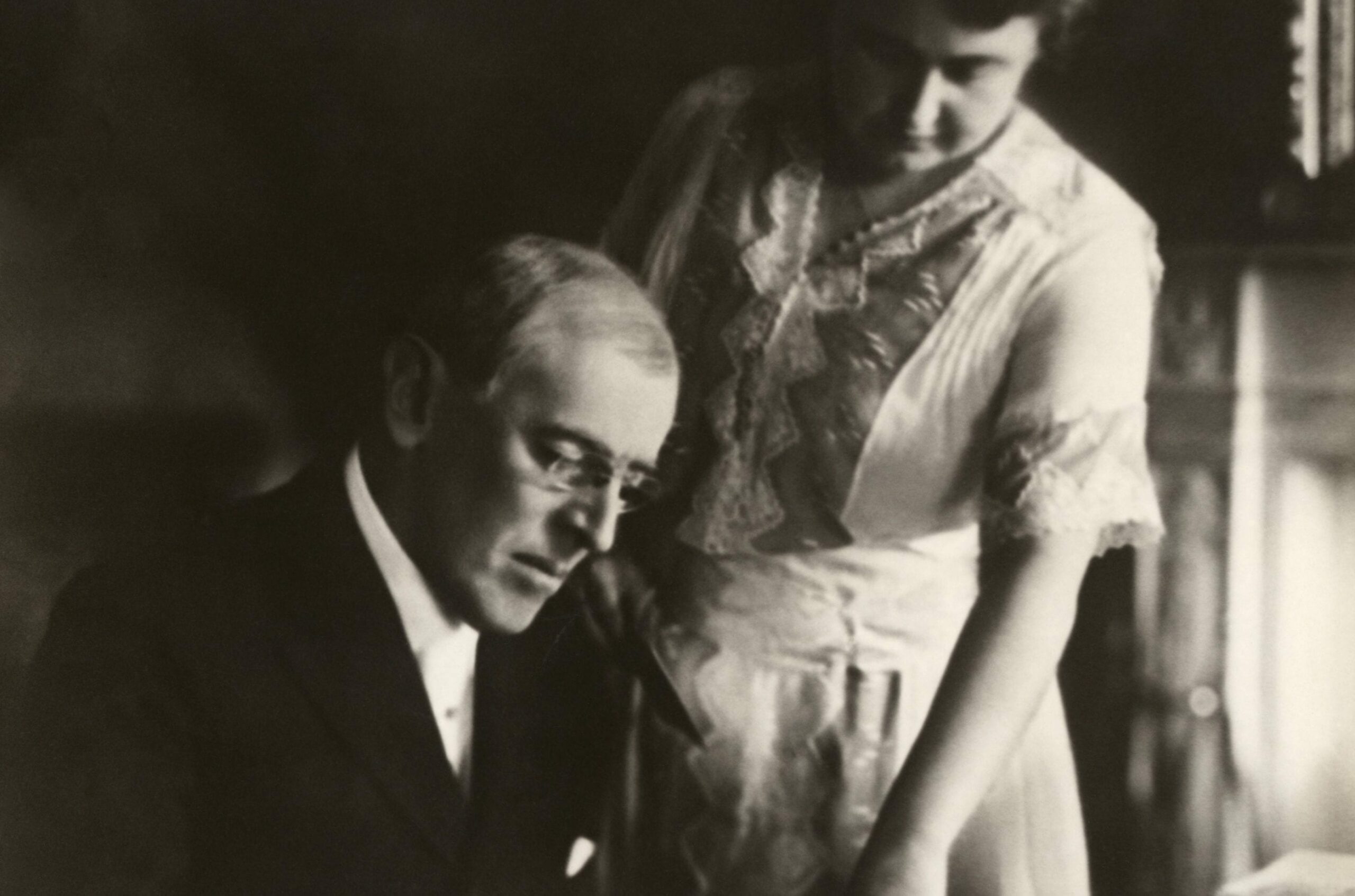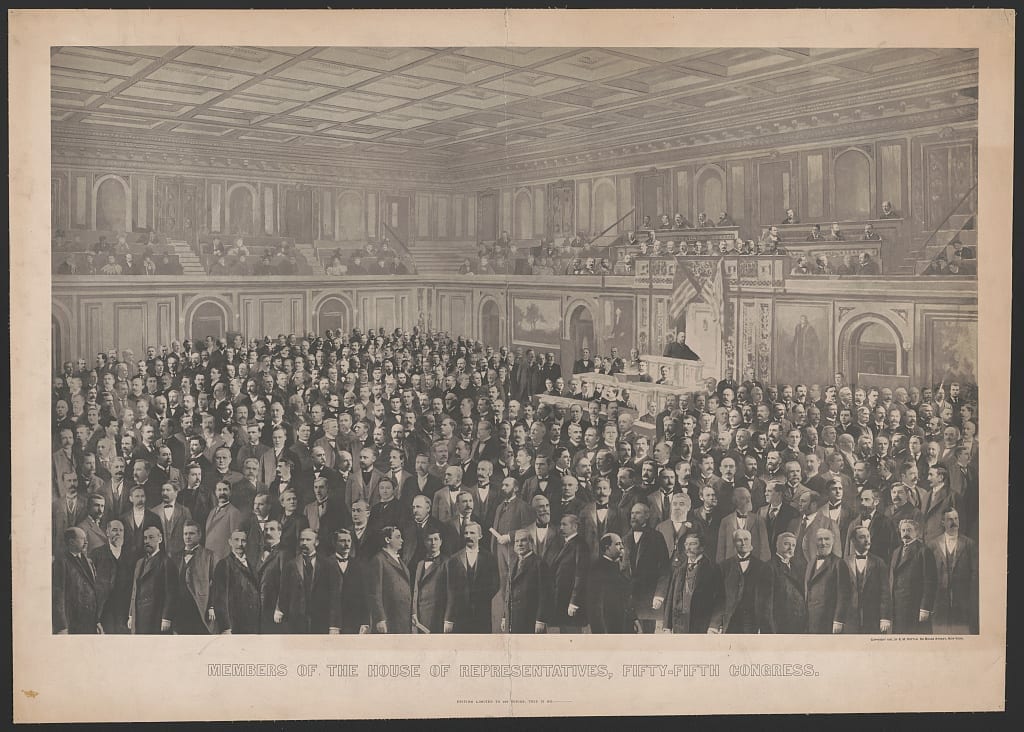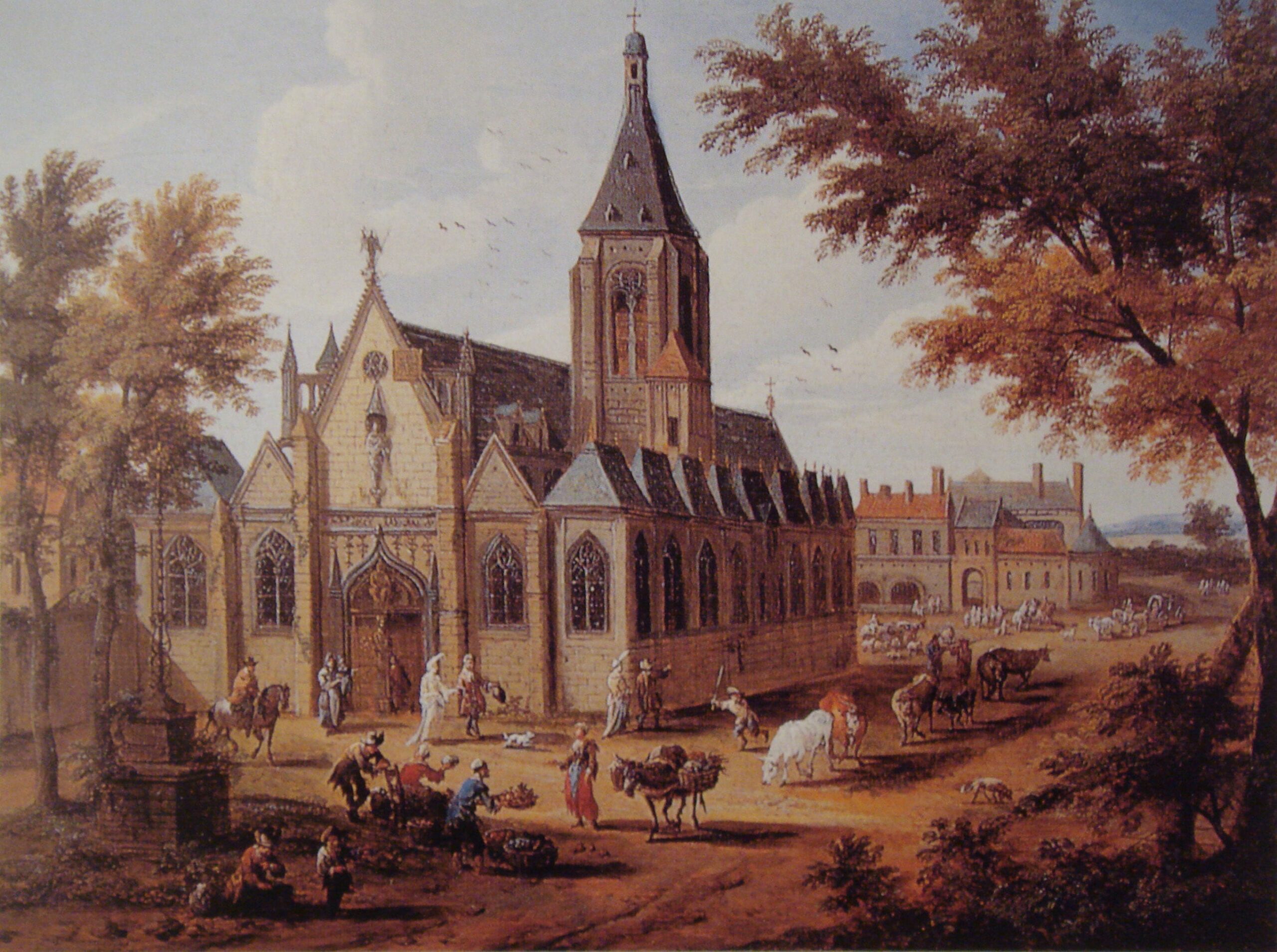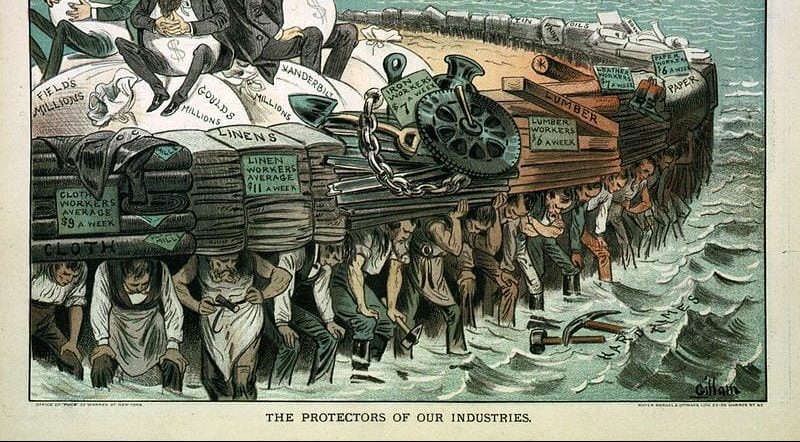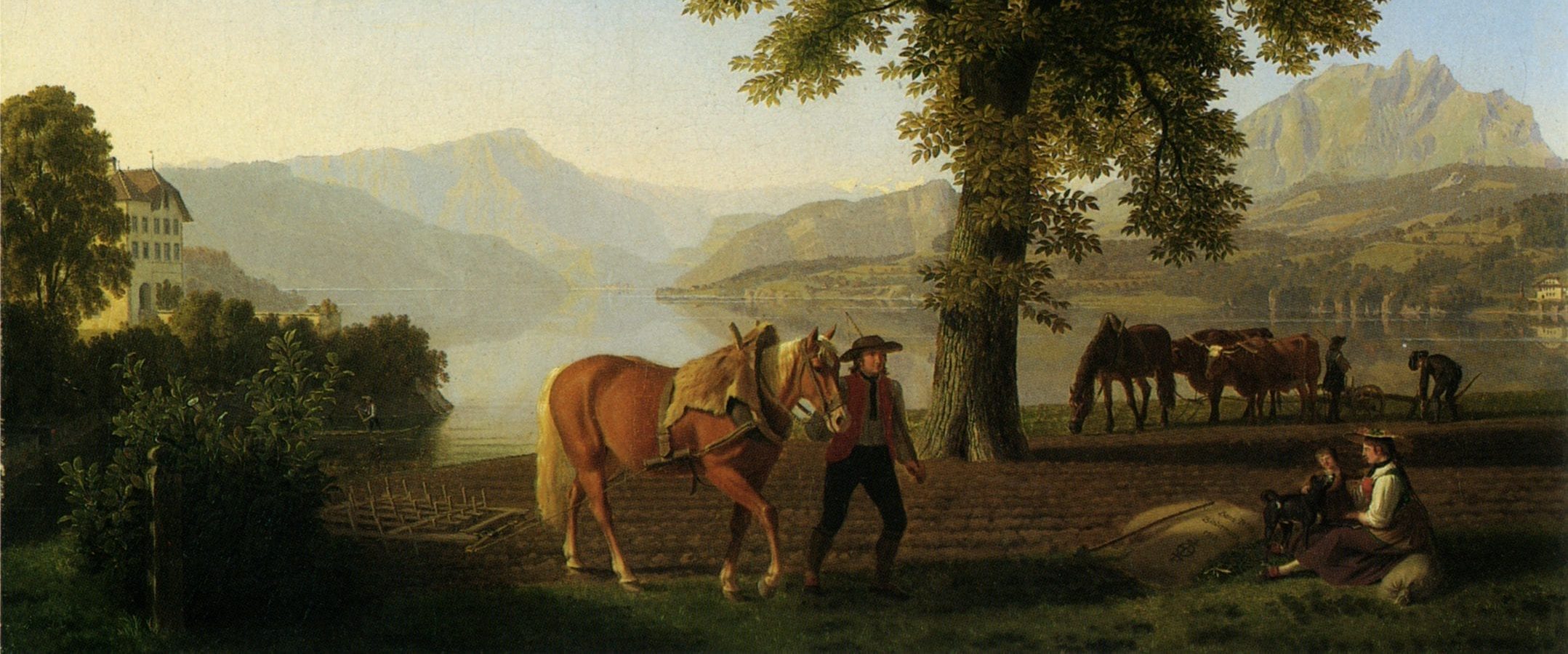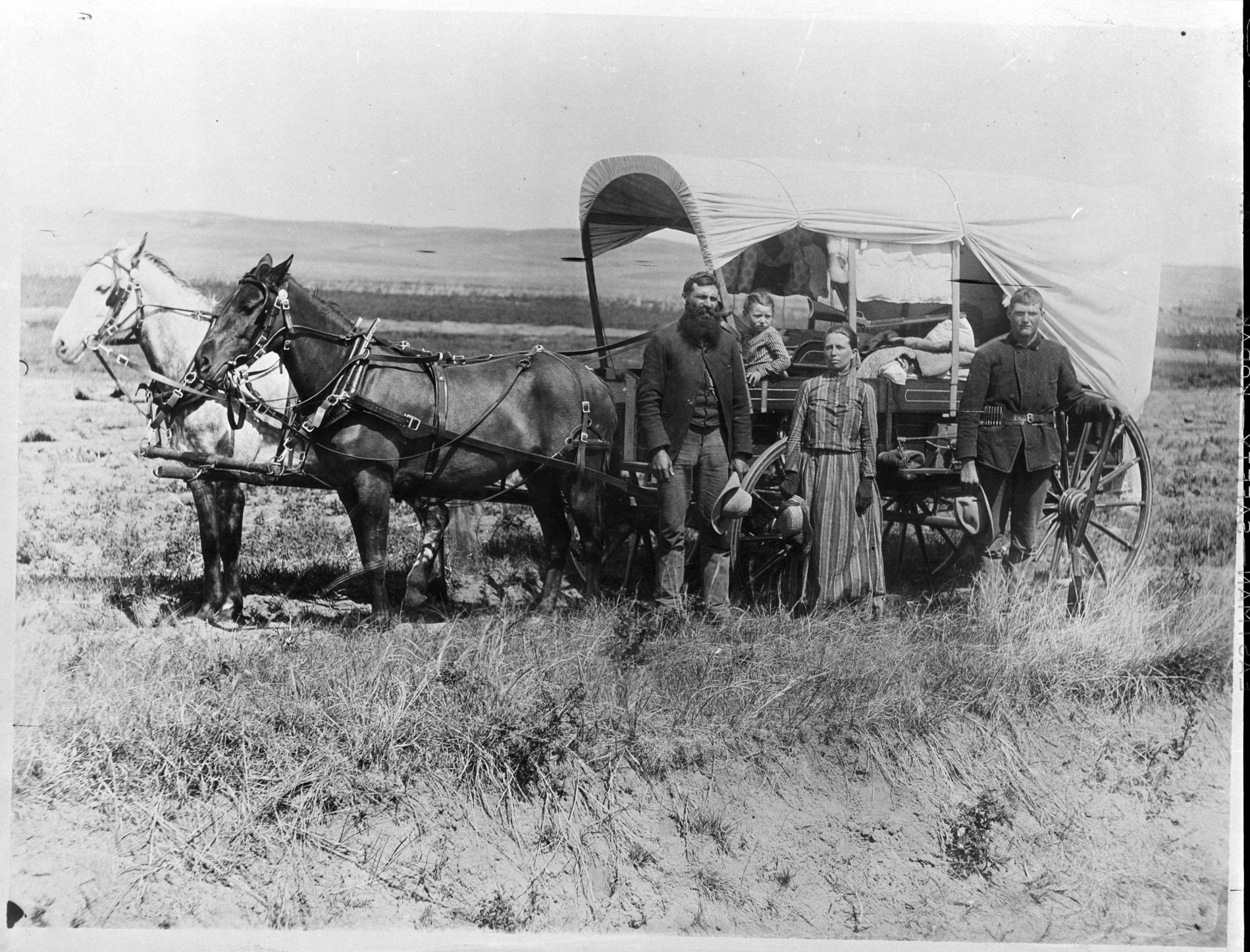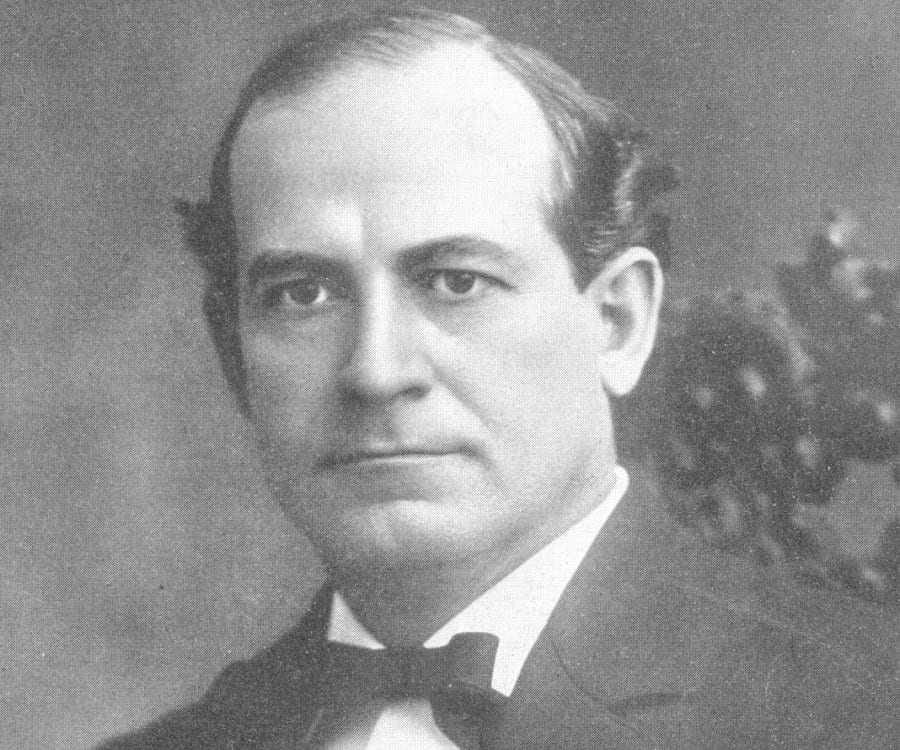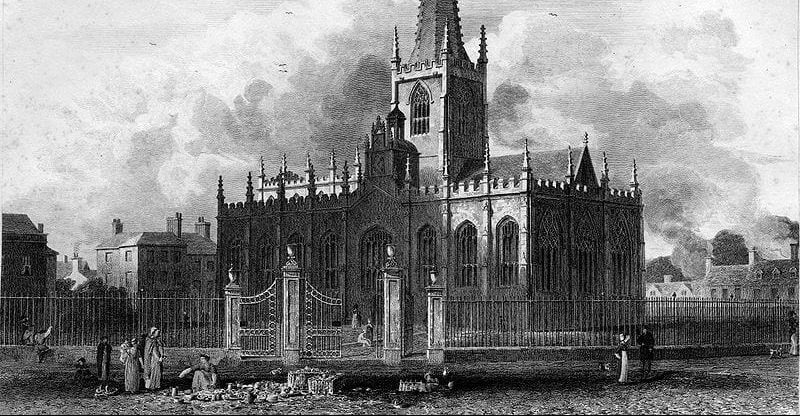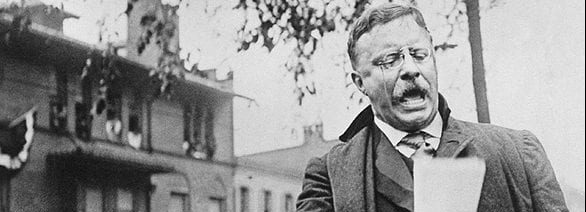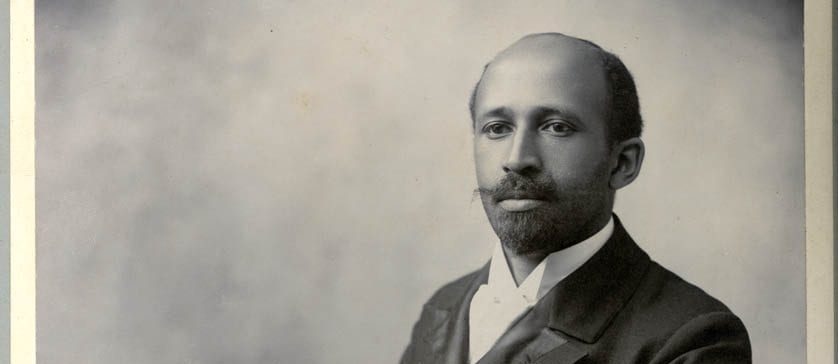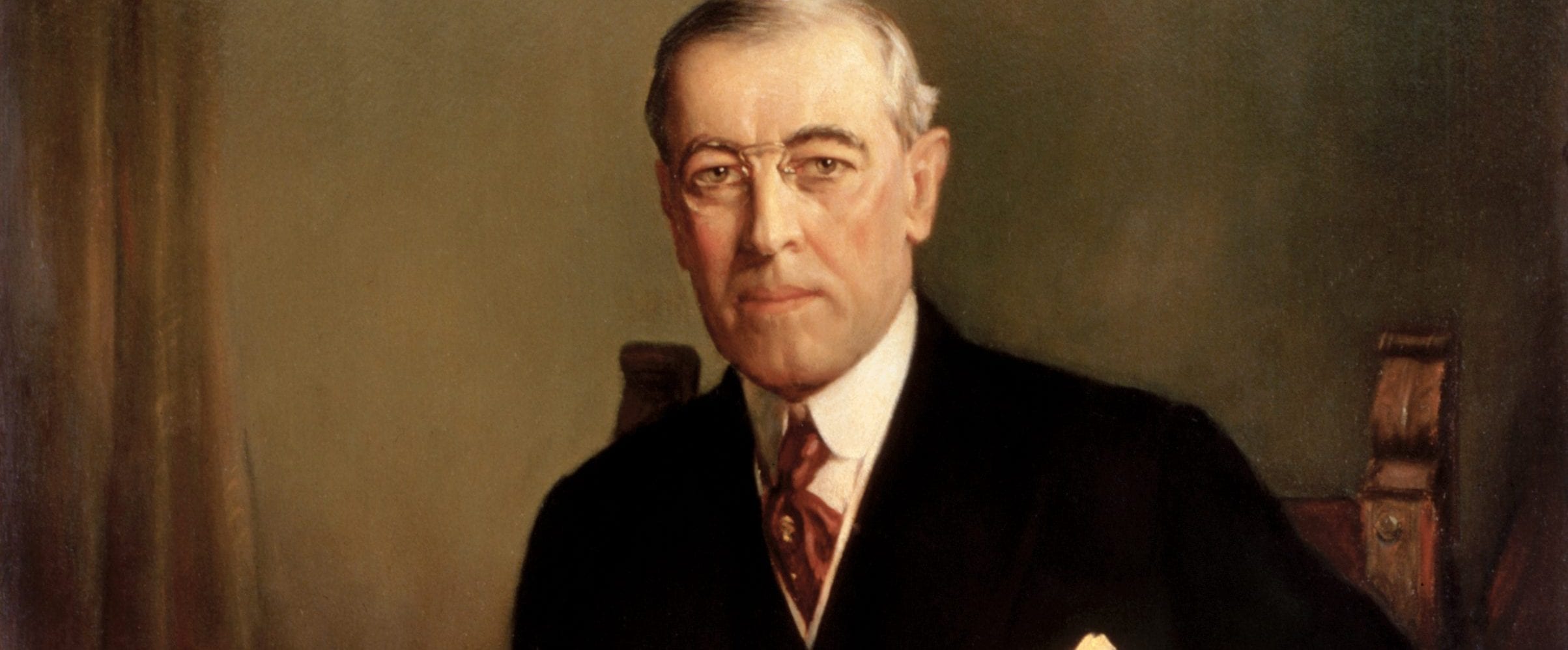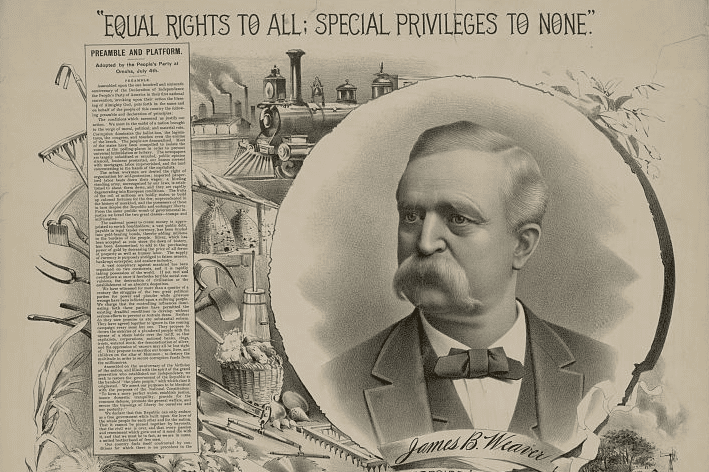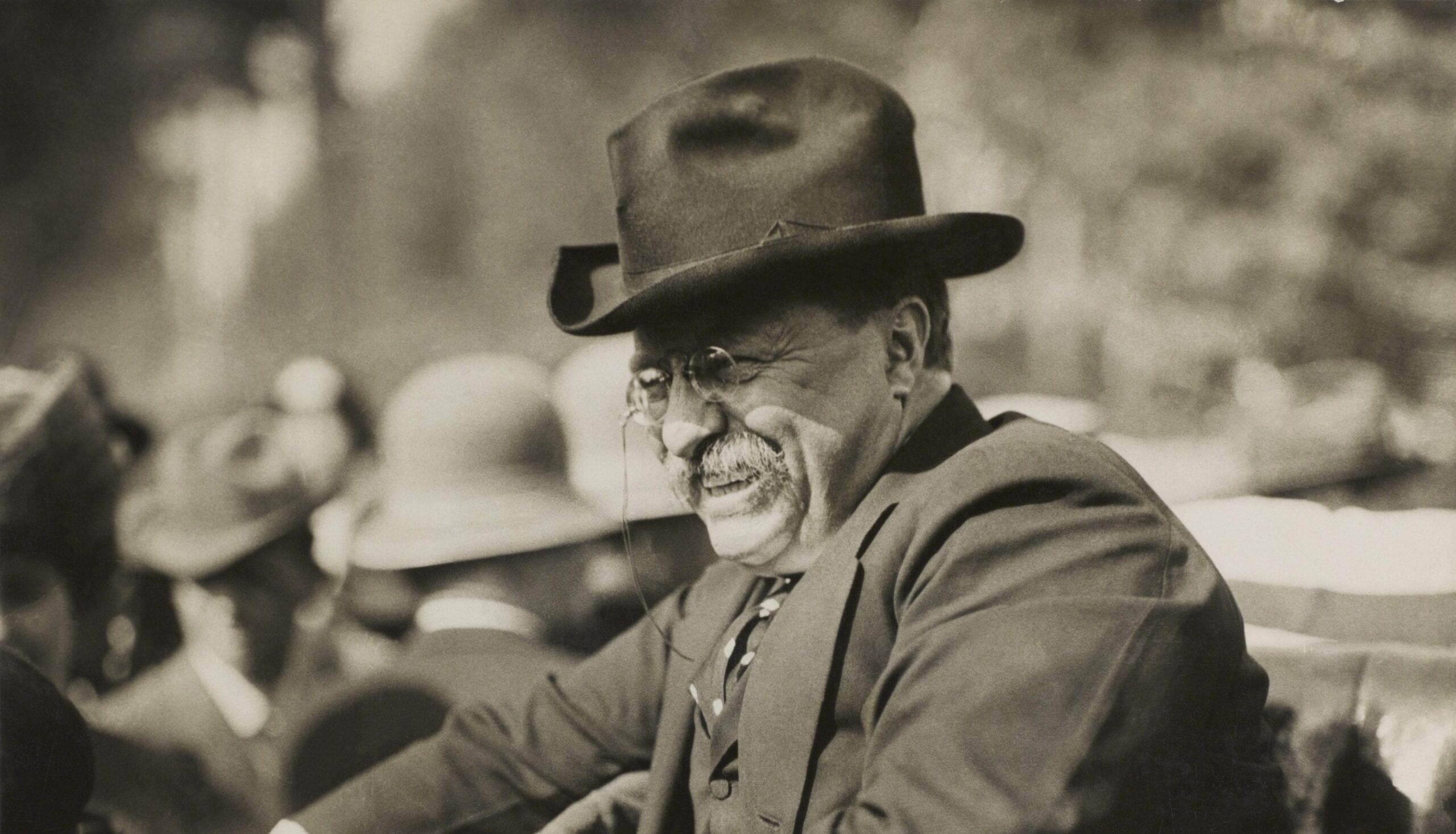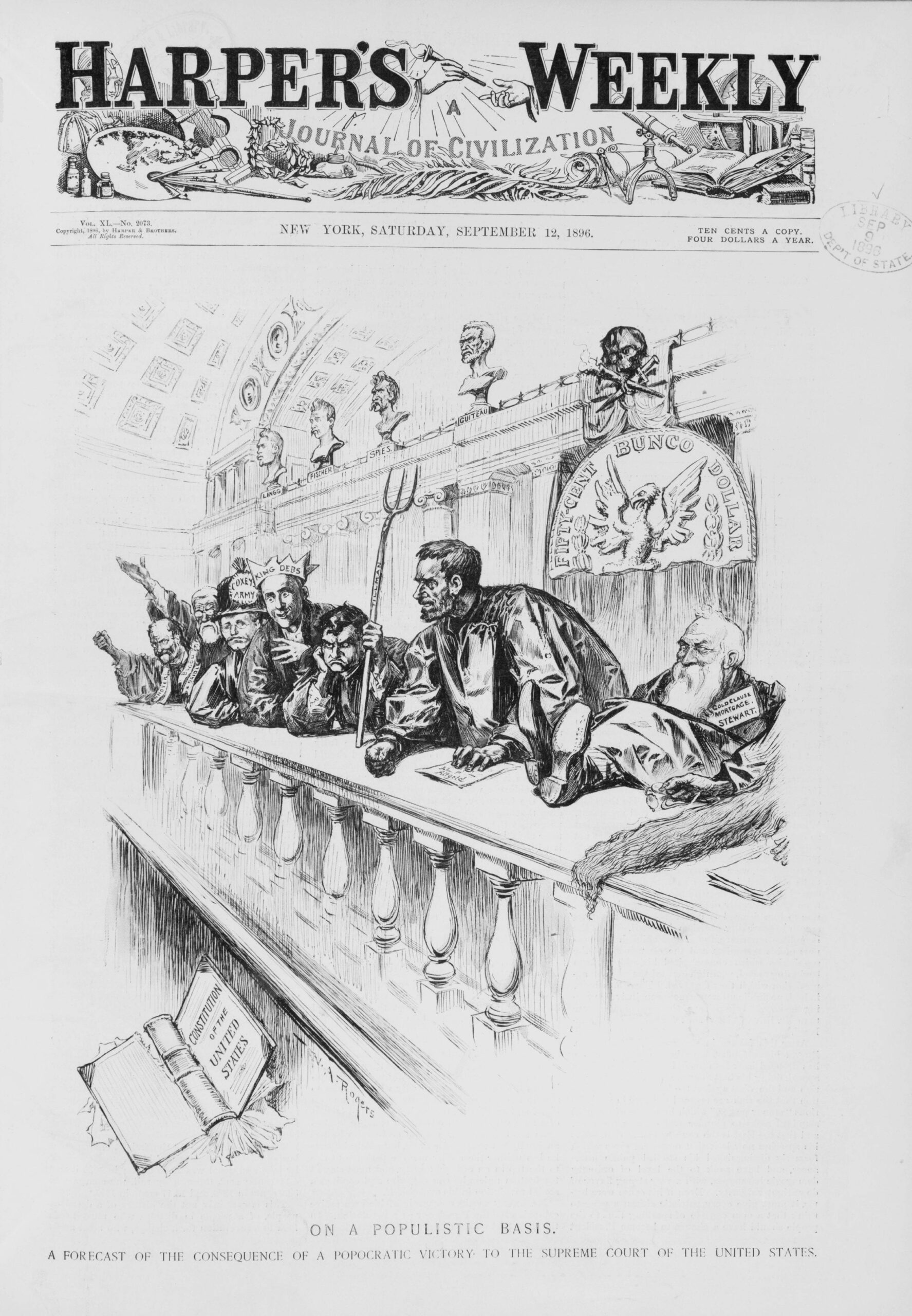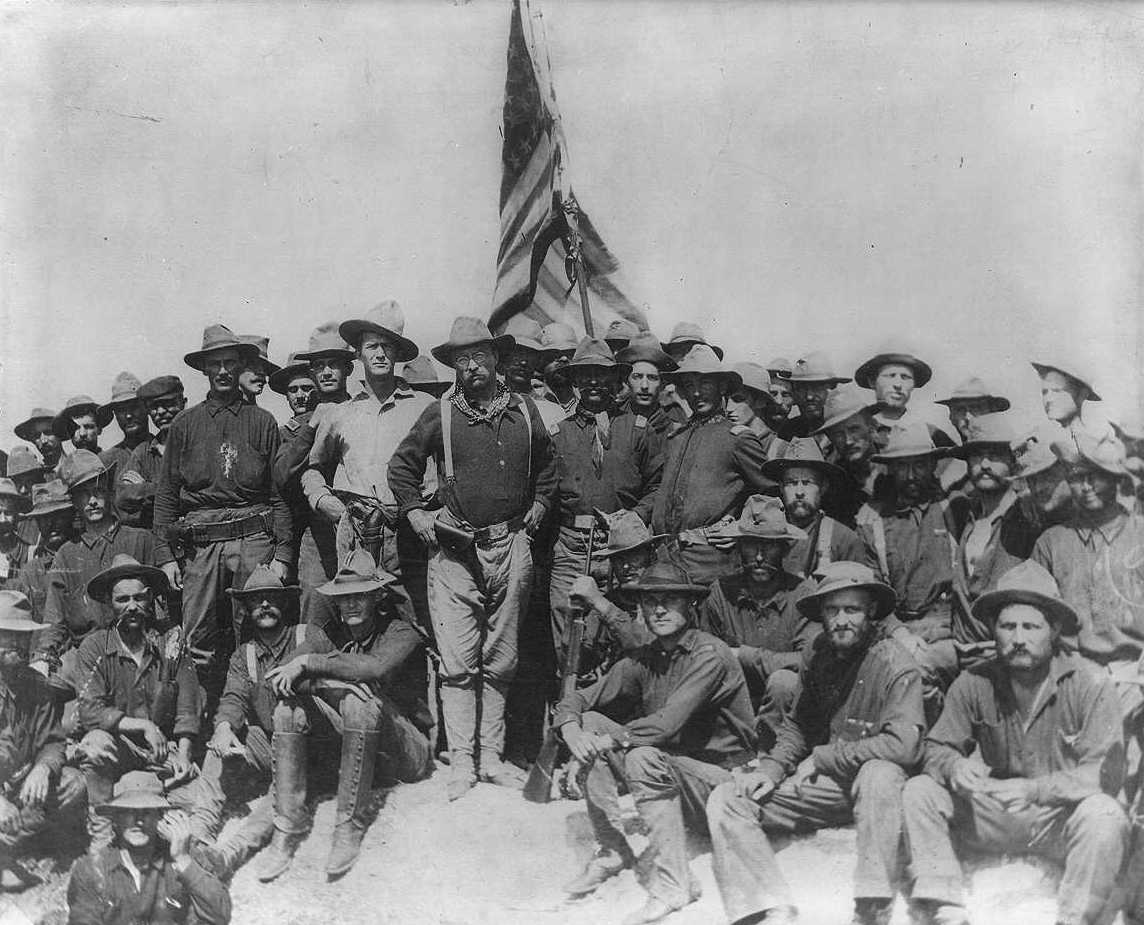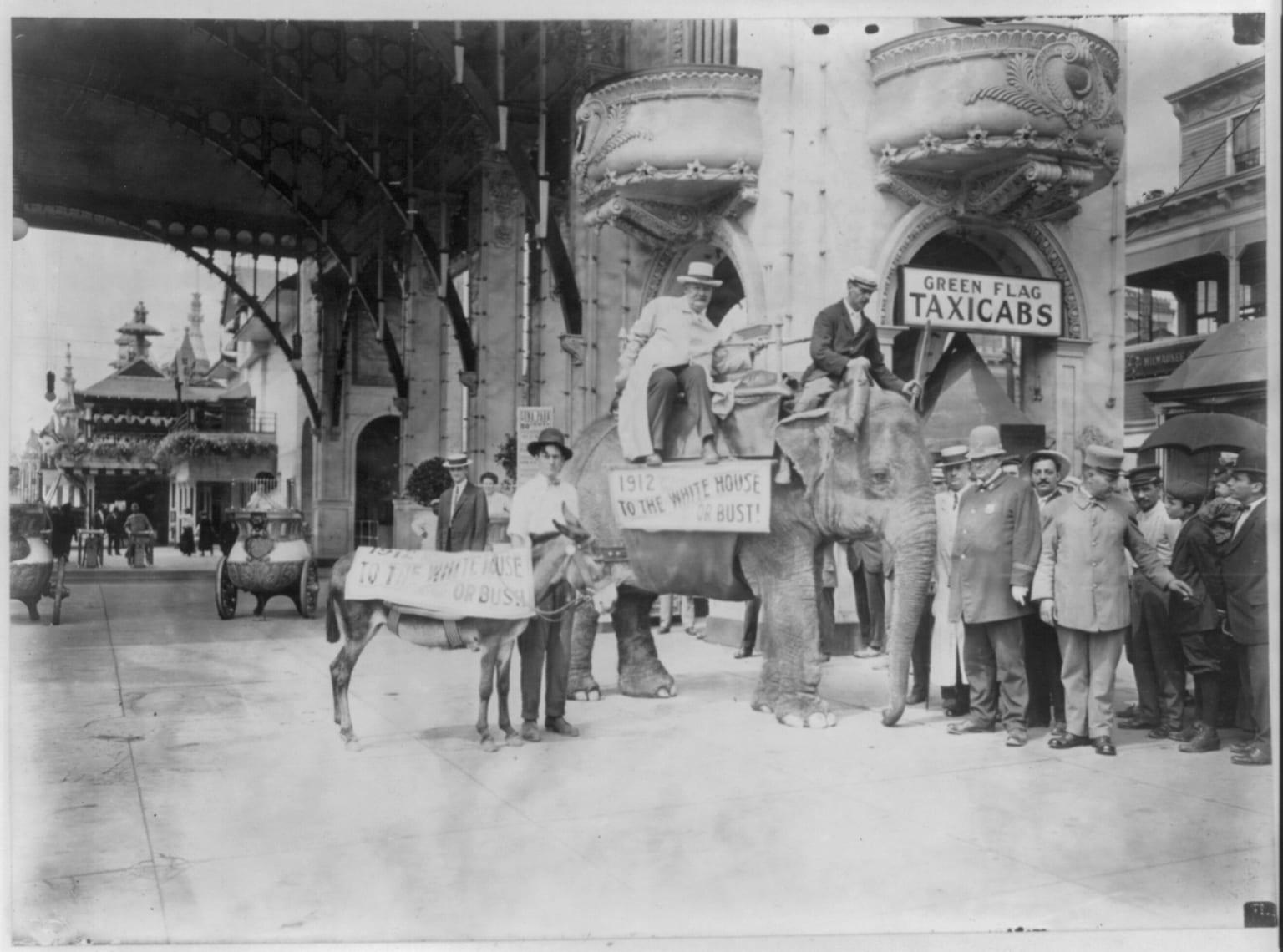
No related resources
Introduction
Nelson A. Dunning (1841–1913) was associate editor of the National Economist, the official journal of the Farmers’ Alliance, an agrarian reform movement in the 1870s and 1880s. Made up of several smaller, independent farmers’ organizations, the Alliance was a forerunner to the Populist Party and advocated, among other things, farmers’ cooperatives, the regulation and possible public ownership of the railroads and telegraph companies, reduced tariffs, the abolition of the national banking system, the direct election of U.S. senators, and the establishment of subtreasuries from which farmers could borrow money against crops deposited in government-established public warehouses.
Among other things included in Dunning’s expansive 1891 edited volume, The Farmers’ Alliance and Agricultural Digest, is a history of the Farmers’ Alliance, a survey of the challenges facing the farming interest, and an explanation of the organization’s ends. In the excerpt below, Dunning offered a brief history of farmers’ movements since the Civil War. According to Dunning, organization was the order of the day. He urged the farming class to do what the business class had already done; that is, to join together to promote its own interests against its enemies. This language of class and of a battle between supposedly exploitative plutocrats and the democratic farmer or worker became a common feature in the populist and progressive rhetoric of American politics.
Source: The Farmers’ Alliance and Agricultural Digest, editor-in-chief Nelson A. Dunning (Washington, D.C.: Alliance Publishing Company, 1891), 1–9, available online at the Hathi Trust Digital Library: https://babel.hathitrust.org/cgi/pt?id=uc2.ark:/13960/t1wd3s276;view=1up;seq=5.
. . . Just in proportion as the people have been granted political rights and privileges, the agricultural portion of the community has made its influence felt in public affairs. It is a conspicuous fact, acknowledged by all, that agriculturists have uniformly manifested good judgment and a spirit of conservatism, in all their political efforts. In nearly every European country, reforms have been demanded, at various times, by the rural population. Such demands have often been followed by bitter contentions, because they were usually of a special or class character, requiring the redress of special grievances, or the granting of special privileges. For centuries before the discovery of America, an undercurrent of unrest is traceable among the rural population, and, as the enlightenment which waited upon the progress of civilization became more and more diffused, this discontent increased. There is no doubt that the hard times which had fallen to the agriculturists of Europe hastened the settlement of the New World. Political and religious freedom seemed to be the object of nearly all immigration to this continent. Agriculture being the basis upon which this structure of human liberty was to be built, the founders of the nation, as well as the Pilgrim Fathers before them, granted to the farmers equal rights with all other citizens. These rights have been recognized since the first settlement in America and were plainly and solemnly consented to by the compact entered into on board the Mayflower. These rights should be maintained inviolable, because, when once invaded, that portion of American citizenship is made to serve and not to share.
It is nevertheless true, as has been charged, that a certain amount of aristocratic ideas found their way to the shores of the New World, and became a factor in its first settlement. This element has been permitted to thrive to a greater or less extent, and remains with us at the present time. As a rule, however, it has been confined to the Atlantic seaboard, where it first located, and has not as yet extended very far into the interior. It is rarely seen, in its full un-American sense, except in large cities, where business relations are in constant touch with the East. One of the relics of aristocracy that has been handed down to us is the U.S. Senate, a branch of our government whose uselessness is only equaled by its aristocratic notions. In connection with this old-time, blue-blooded aristocracy, and supplemental to it, has sprung into existence, in almost every part of our country, another species of aristocracy, which follows the acquirement of large fortunes. It has come to be an accepted idea, that the accumulation of money will, in some manner, divorce its possessors from the taint of plebeian birth, obscure beginnings, or former social relations, and at once change the inner as well as the outer individual.
Aristocratic ideas, backed up by intelligence and refinement, may serve a good purpose in toning down the untamed spirit and broadening the nature of a Native American; but when this station in society is reached through the medium of a bank account, human nature revolts, and the average person becomes disgusted. This spirit of avarice, or desire to make money, has become the bane of our social relations, and threatens the perpetuity of the government itself. The desire for wealth is increased as the power and privileges that it brings become more clearly understood. When the brains of a Webster or a Calhoun must wait unnoticed in the anteroom, while the plethoric pocket-book of some conscienceless speculator, monopolist, or trickster brings to its owner the privileges of the parlor, and the softest seat at the feast, intelligence and moral rectitude will always be at a discount, while fraud and corruption will bring a premium.[1] In order that such conditions may exist, some portions of the people must suffer. This becomes a self-evident truth to all who will give the matter even the least consideration. The possession of wealth may be assumed, as a rule, to bring about the differences that are seen in society, and, because of this, becomes the essential object for which a large portion of our people are contending.
It is evident that all cannot be rich, and it is also true that none should be poor because of economic conditions. All economists agree that labor is the sole producer of wealth. If this proposition be true, it might be proper to ask: Why does not the producer of this wealth possess it, after production? What intervening cause steps in between the producer and this wealth, and prevents his owning and enjoying what his brain and brawn have created? No one seems to question the right or justice of each individual enjoying the fruits of his own labor. But the recognition of this right does not prevent the separation of production and possession, nor does it indicate a remedy for the evil. The idea of labor in production, at the present time, is associated with only a portion of our people. It represents, under the prevailing ideas of society, an undesirable condition, from which all, or nearly all, seek to be freed. The man or woman does not live who desires to labor every day in every year of their whole sojourn upon earth. Such a desire would be unnatural, a sin against the future, and a libel upon the past. Nine-tenths of the labor performed at the present time is done with the belief that this hard labor will bring about future ease and comfort. But when these efforts are honestly and earnestly continued for a series of years, and the anticipated reward does not come, and the plain fact is demonstrated that labor brings no reward, some give up in despair, while others determine to ascertain the cause, if possible.
It was to satisfy the American farmer that his calling had either become obsolete, or his environment unnatural, that agricultural organizations, for political or economic purposes, were brought into existence. Up to 1860 the economic privileges of the farmer were somewhat near a parity with other branches of productive industry. The systematic spoliation of the present was, to a large extent, practically unknown. Special laws and privileges, which operated directly against the national interests of agriculture, existed only in a mild degree. At that period immense fortunes were almost unknown, and aristocracy was confined to the better educated and more refined. Neither poverty nor crime existed in the same proportion as now, and the general trend of events was toward conservatism in all economic conditions. Moderate fortunes, moderate-sized farms, and moderate business enterprises were not only the rule of the times, but were maintained under the protecting care of society’s consent. . . . The late Civil War gave an impetus to all productive labor. All efforts in that direction were profitable for a time, and the business of agriculture was looked upon with much favor. Vast sums of money were expended in the purchase and improvement of farming lands, and the success of that branch of industry seemed assured. The war ended in the spring of 1865, and that year closed amid universal prosperity in the North, East, and West. The people were out of debt, all labor was employed, and all the conditions which wait upon a prosperous and industrious people were seen on every hand.
The people of the South had begun the task of repairing the ravages of war and rebuilding their shattered fortunes with a determination which admitted of no failure, and the whole country echoed with the busy hum of industry. During the year which followed, these conditions continued, but in the latter part of 1867 a change was observed. It had been brought about quietly. No one seemed to know how, but the effects were nonetheless positive. Agriculture was the first to feel this changed condition, and undertook to counteract it by a closer economy and increased production. The first compelled the manufacturer to curtail his production or lessen its value. Either course reduced the remuneration of the laborer, and compelled him to purchase less or buy cheaper. This reacted upon the farmer. The second overstocked the market and reduced the price of the whole product, and enabled those who could to dictate their own terms. This condition has obtained among the farmers to the present time. In the vain endeavor to extricate themselves from their surroundings, having faith in the prospect of better times, the farmers borrowed money on note or mortgage to tide them over, only to find that the future brought no relief. This dark cloud of debt and disappointment hung lower and lower each succeeding year, until the storm of 1873 swept over the country, leaving in its course the wrecks of many thousand financial disasters.[2]
In 1867 the first agricultural organization of promise appeared in the Grange, or Patrons of Husbandry.[3] This organization sought to better the condition of the farmer by eliminating the so-called middleman—the merchant or dealer. It assumed that the profit, which lodged somewhere between the producer and consumer, was the cause of nearly all the disaster that waited upon agricultural effort. This idea took hold of the people, and the result was an immense organization, with every promise of success. The experiment, aside from its educational results, was almost an entire failure.
Since this time the causes which have depressed agriculture have been discovered, throughout the length and breadth of the land, by those who were interested, those who sympathized, to be the politician and the demagogue; but the discovery produced little or no effect. It remained for the farmer himself, after several ineffectual attempts, to solve the problem, and in so doing challenge the respect and admiration of the thinking world. The solution of this question, and the demand for its enactment into law, have no parallel in all history. It is an uprising of the conservative element of the people, the brain and brawn of the nation. It is a protest against present conditions; a protest against the unequal distribution of the profits arising from labor in production; a protest against those economic methods which give to labor a bare living, and make capital the beneficiary of all life’s pleasures and comforts. It is a protest against continual toil on the one hand, and continual ease and comfort on the other. It is a protest against forced economy, debt, and privation to the producer, and peace, plenty, happiness, and prosperity to the nonproducer.
The farmers have learned the secret, that organization, unity of action, and continuity of purpose, on their part, will in the end unite all sections, enrich all communities, and make every citizen equal before just laws. Intelligence to organize, fellow feeling enough to unite, and manhood sufficient to stand firm are the necessary requirements to bring this about. Organization is now the order of the day. It is the motive power that rules and guides the world. Without it the best of causes will not succeed, while with it the worse cause may prosper for a time. In the great struggle of life, as society is now constituted, organized evil must be met with organized good; organized greed with organized equity. In the combination of kindred forces lie the astonishing results of modern undertakings.
Individual enterprises are at a discount in the commercial world for many reasons. The individual may die and the whole business pass necessarily into the hands of those less competent to direct; or the individual may make a false move and thereby jeopardize the entire venture through an error in his single judgment; or, again, he may fall under the influence of bad habits and wreck the business through neglect or fast living. All these contingencies are impossible with an organization properly constituted. Members of the organization may die, but the organization continues. The aggregate business intelligence of the whole membership is used, and not the single ideas of one. Organizations go on, live on; gathering experience which is stored up; gathering special information which is safely put away; increasing in wealth of which the outside world has no knowledge; using their power when least expected, and for objects that require years of patient waiting and calculation to perfect and mature. These considerations not only recommend a system of organization to all progressive minds, but make them absolutely necessary for success in modern business. One thing is certain—organization as a factor of our modern civilization has come to stay. It cannot be eliminated, but may be, to a greater or less extent, confined in its operation within legitimate bounds. Its benefits will be sought under all conditions and by all classes of people, and those who ignore its power or underestimate its strength are sure to have cause for regret in the end.
The difficulty of organization among farmers is not wholly confined to a want of information, but shows itself in neighborhood factions of numerous kinds, individual or local jealousies, family or political differences, and a multitude of other insignificant but annoying obstructions that have to be avoided, smoothed over, or settled. These are never met with among men who organize from a business standpoint. The farmers, as a class, have been betrayed in almost everything, with a regularity truly astonishing. They have struggled against all odds and have submitted to the result with a fortitude absolutely wonderful, but the time has come when something must be done. Some united action is demanded in defense of their own rights, and the maintenance of agriculture. This fact is too plain and too imperative to be longer ignored. It is a question now between liberty and serfdom, and must be decided without delay. Some will ask: What shall we organize for? For the same reasons that our enemies do; for individual benefits through combined effort. Organize to watch them, to consider their motives, and, if possible, checkmate their designs, when aimed at you or your business. This is a selfish world, and they who fail to realize this fact are quite sure to find it out when too late. Organize for better laws; for through legislation comes prosperity or adversity.
- 1. American statesmen Daniel Webster (1782–1852) and John C. Calhoun (1782–1850).
- 2. The economic depression of 1873 was precipitated by a financial panic due at least in part to the demonetization of silver via the Coinage Act of 1873, increased interest rates, and the failure of speculative investments. Of particular note is the bankruptcy of Jay Cooke and Company, a major banking firm heavily invested in the railroad boom.
- 3. Established in 1867, the National Grange of the Order of the Patrons of Husbandry (the Grange) advocated agrarian economic and political interests on a national scale. Among other things, the organization lobbied for the regulation of railroad and grain elevator rates.

Conversation-based seminars for collegial PD, one-day and multi-day seminars, graduate credit seminars (MA degree), online and in-person.

Our Core Document Collection allows students to read history in the words of those who made it. Available in hard copy and for download.



